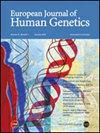医疗专业人员对超快速基因组测序的看法及其在危重儿童临床实践中的应用
IF 4.6
2区 生物学
Q2 BIOCHEMISTRY & MOLECULAR BIOLOGY
引用次数: 0
摘要
超快速基因组测序(urGS)在新生儿和儿科重症监护情况下的临床应用已经得到证实,并在临床实践中研究了其实施的障碍。通过医学专业学会分发了一份包含38个项目的调查问卷,以便在实施之前确定法国在该领域的保健专业人员的意见。总的来说,收到了116份回复:35%来自临床遗传学的医疗保健专业人员,19%来自实验室遗传学,32%来自儿科或新生儿重症监护病房(NICU/PICU)。几乎所有(97%)的受访者同意,医疗保健专业人员应在首次测试订单前接受专门培训;94%的人认为urGS是有用的,97%的人认为结果可能会改变撤销维持生命治疗的决定。87%的受访者认为有必要对urGS请求进行多学科批准,84%的受访者认为有必要对结果进行多学科讨论;91%的受访者认为临床遗传学家和NICU/PICU医生联合披露结果是理想的,78%的受访者反对在结果同时披露其他发现。对于99%的受访者来说,在结果出来后,心理援助是至关重要的。根据结果,我们提出了一个工作流程,以促进在广泛的中心实施。本文章由计算机程序翻译,如有差异,请以英文原文为准。

View of healthcare professionals on ultra-rapid genome sequencing and its future implementation in clinical practice for critically ill children
The clinical utility of ultra-rapid genome sequencing (urGS) in neonatal and paediatric intensive care situations has been demonstrated, and barriers to its implementation in clinical practice studied. A 38-item questionnaire was distributed via medical professional learned societies to identify the views of French healthcare professionals in the field prior to its implementation. Overall, 116 responses were received: 35% from healthcare professionals working in clinical genetics, 19% in laboratory genetics, and 32% in paediatric or neonatal intensive care units (NICU/PICU). Nearly all (97%) respondents agreed that healthcare professionals should receive specific training before a first test order; 94% considered urGS useful, and 97% that the results would likely modify a decision to withdraw life-sustaining treatment. A multidisciplinary approval of the urGS request was considered necessary by 87% of respondents, and multidisciplinary discussion of the result by 84%; joint disclosing of results by a clinical geneticist and NICU/PICU physician was considered ideal for 91% of respondents, and 78% were against additional findings being disclosed at the same time as the result. For 99% of respondents, psychological assistance was crucial after the result. Based on the results, we propose a workflow to facilitate implementation in a broad range of centres.
求助全文
通过发布文献求助,成功后即可免费获取论文全文。
去求助
来源期刊

European Journal of Human Genetics
生物-生化与分子生物学
CiteScore
9.90
自引率
5.80%
发文量
216
审稿时长
2 months
期刊介绍:
The European Journal of Human Genetics is the official journal of the European Society of Human Genetics, publishing high-quality, original research papers, short reports and reviews in the rapidly expanding field of human genetics and genomics. It covers molecular, clinical and cytogenetics, interfacing between advanced biomedical research and the clinician, and bridging the great diversity of facilities, resources and viewpoints in the genetics community.
Key areas include:
-Monogenic and multifactorial disorders
-Development and malformation
-Hereditary cancer
-Medical Genomics
-Gene mapping and functional studies
-Genotype-phenotype correlations
-Genetic variation and genome diversity
-Statistical and computational genetics
-Bioinformatics
-Advances in diagnostics
-Therapy and prevention
-Animal models
-Genetic services
-Community genetics
 求助内容:
求助内容: 应助结果提醒方式:
应助结果提醒方式:


